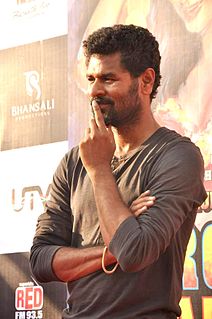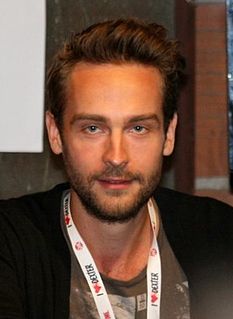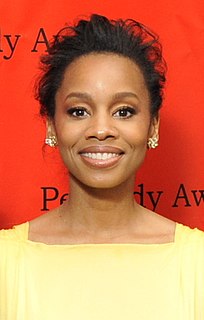A Quote by Denis Villeneuve
On a film crew, you can see very quickly that some people who are working with you are stronger than you. Then you have to have the humility to listen to them. And because very often they have better ideas than yours, it can be tough on the evil ego. But it makes a better film.
Related Quotes
That is again the same story played on a more subtle level. That's what the religious people have been doing down the ages - pious egoists they have been. They have made their ego even more decorated; it has taken the color of religion and holiness. Your ego is better than the ego of a saint; your ego is better, far better - because your ego is very gross, and the gross ego can be understood and dropped more easily than the subtle. The subtle ego goes on playing such games that it is very difficult. One will need absolute awareness to watch it.
The great thing with film is that it doesn't have an ego. It's just a film. Everybody that makes them has an ego, and the problem with awards and stuff like that is that it always affects the egos, and everyone gets stained by it in some way. And that can be fine and very innocent, but it can be horrible as well.
If there are actors that are brilliant, people often wonder whether it's intimidating working alongside them, but it really isn't. It just makes you up your game and want to be better. Rather than cowering in their shadows, it's very encouraging to see someone who's incredible; it makes me want to be a bit more like them.
Everything has to be understood in opposition to something else. For some dang reason, the ego prefers to make one side better than the other, so we choose. And we decide males are better than females, America is better than Canada, Democrats are better than Republicans. And for most people, once this decision is made, it is amazing the amount of blindness they become capable of. They really don't see what's right in front of them. Once you see this, it's an amazing breakthrough, and that is the starting place for moving away from dualistic thinking.
I first came to cinema as a passionate filmgoer, when I was a child. Then, when I was a very young man, I became a film critic precisely because of my knowledge of cinema. I did better than others because of this. Then I moved on to screenwriting. I wrote a film with Sergio Leone, 'Once Upon a Time in the West.' And then I moved to directing.
I'd never read 'Prince Caspian'. I watched it and loved that film. Everybody was talking about its lack of success; its relative success in comparison to the other film. It's a great film. It deserved to do a lot better than it did. It's very difficult to make a film that will match up to the first.
Few things kill likeability as quickly as arrogance. Likable leaders don't act as though they're better than you because they don't think that they're better than you. Rather than being a source of prestige, they see their leadership position as bringing them additional accountability for serving those who follow them.
It gave me a lot of pleasure and pride that 90 percent of the crew for 'Monsoon Wedding,' and most of my film, are women. We get the work done, you know, much lesser play of ego... And I really believe in harmony, I believe in working in a spirit of egolessness and that the film is bigger than all of us.
As a director, you're a bit of a dictator. But I feel that you're a better director if you're open to other people's ideas. It means that it's tougher: you have to be in a choosing process; you have to put the ego aside. As long as everybody's aiming in the same direction... I'm open to my main partners in the film crew.
Very often the people who are shooting your film do not look like you if your film is brown-centric in some way. What is very interesting is to be going through these scenarios and turning around and looking at so many faces that are not yours. Even though those faces are looking at you in love, it puts you in a space when you are on a plantation in that condition. I think that it allows you to see further into possibly what that place really was for someone else, except thank God we're with people who love and respect us.
The whole switch from film to digital has changed some of the ways I use color and the juxtaposition of light and dark. It's getting better with digital, the separation's gotten better, but I still feel like it's really flatter than film, so I do a lot of screening and subtle textural printing and painting on clothes for film to get it not to look flat.




































